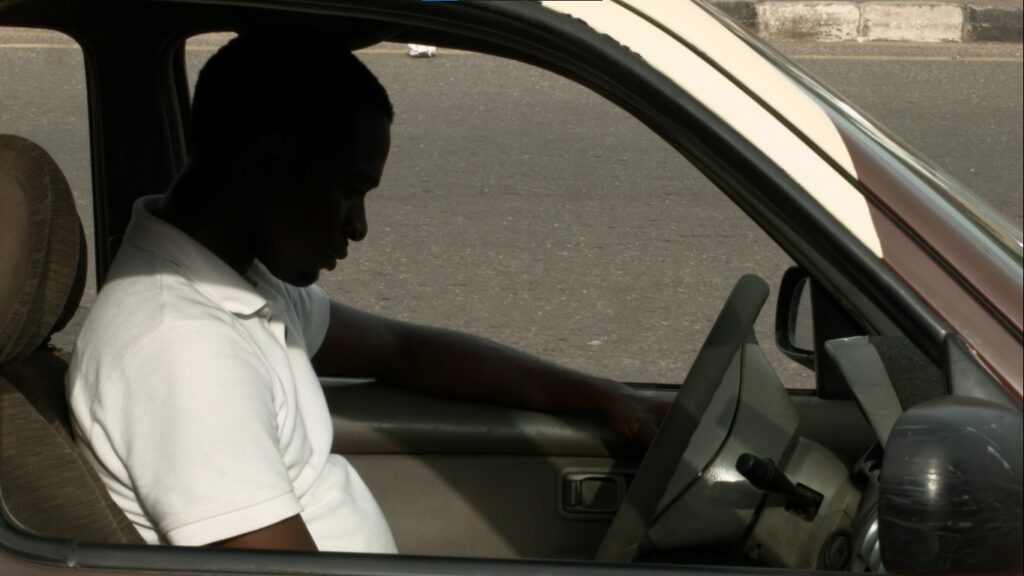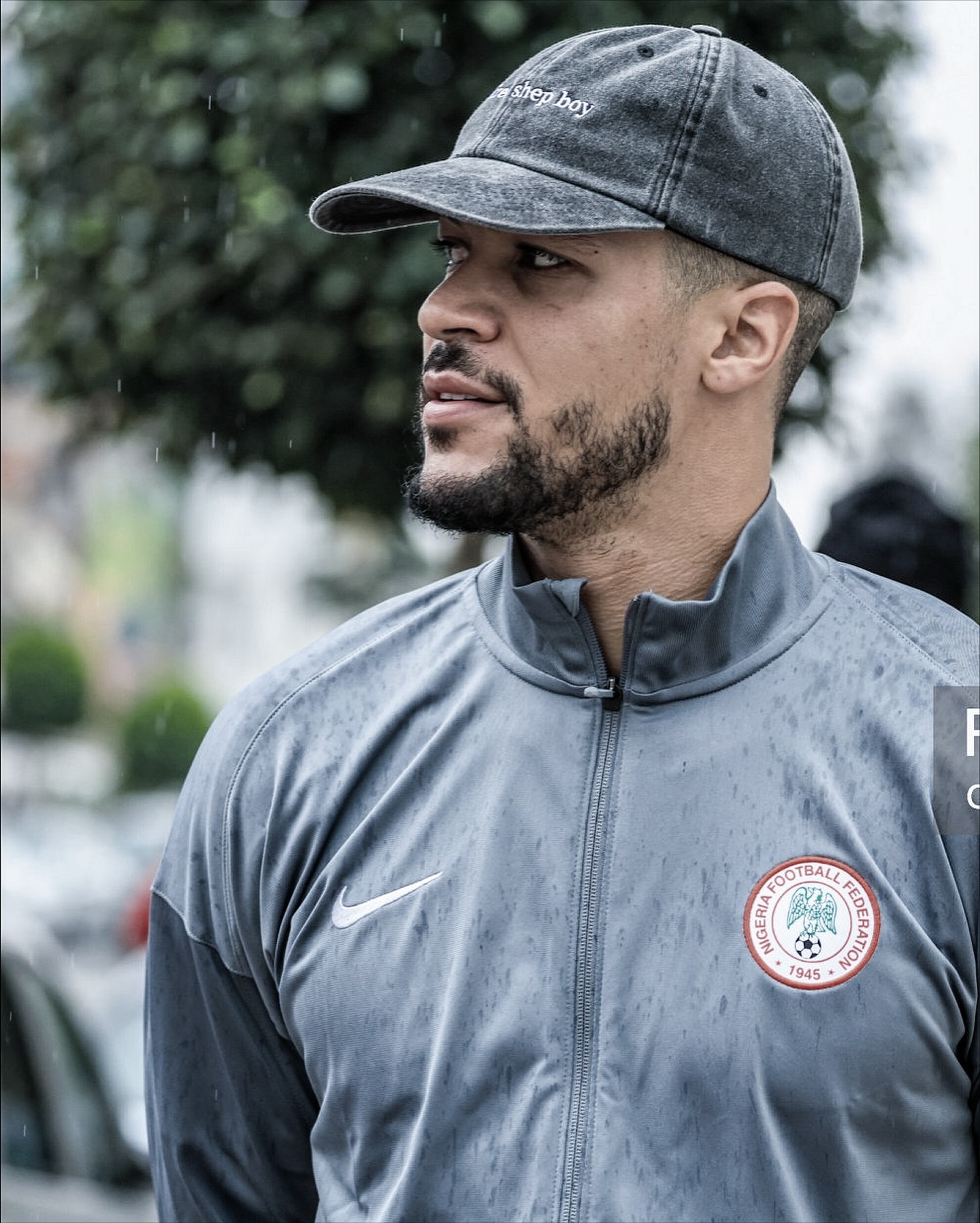By Ifeoluwa Olutayo.

Many cinema enthusiasts deign to answer the question (when posed) of documentary authenticity and approach. Some are purists for all the factors considered, the people must be interviewed talking-head style, and no embellishments or recreations must be done. Everything must be truthful.
Others believe in doing the opposite with all of the control still firmly planted in their hands and pre-ordained scripts.
But there are filmmakers who value the honesty of the frame over some of the stringent rules set to govern the work. They control the camera, but they allow the world to play out in front of them and more times than most, they are rewarded with a portrait more honest than anything found in the other two approaches. This is one of those times.
With Alain Kassanda’s Trouble Sleep, he crafts a cutting portrait of the city of Ibadan, driven by two people connected by the infuriating circumstance of having to pay out of their hard-earned money to an institution that provides no service other than a manufactured (and incredibly demanding) job and manufactured protection.
The film begins with a conversation between one of those two people; Alfred, a civil engineering graduate about to begin a new job as a cab driver and his drink partner, JohnPaul, a BSc and Master’s Degree holder in Literature who revisits a conversation held in bars and third spaces all across the country; the state of Nigeria. That very conversation about the survival of the individual is very much infused in every tilt, montage and pan that follows.
Fred is shown the ropes by another cab driver (Nissan Micras, the cars used for cabs in Ibadan), detailing routes and taxes on the road. Kassanda’s camera (and by extension, us) are then passengers on a journey of this road that Fred must master to earn a living.
The route in itself contains a stop at a familiar hall of learning (University of Ibadan) of which an obtained degree, as he has, promised a lot more in life to thousands who are now trapped in everyday survival on the same road, due to institutional failures.
The road lives a life of its own though and the chaos and fickle nature must be navigated, with the representatives of exploiting and exploited institutions searching for their own share of Fred’s spoils.
In comes a member of the transportation union, Akinyemi who embodies some of the chaos of the road, chasing after reticent micra drivers, collecting the share of spoils owed to the union and dodging cars in pursuit of escapee vehicles. He is a capable modern-day tax collector, a daily participant in the mess that the road embodies. He is very much aware that he is hated by people because of the uniform he wears, as he engages in conversations with his other union workers; they represent a failing of the system, even if their jobs are very much legal.
They are conflated with the thugs and robbers and insulted in their very own communities because their job represents a (mostly) faceless institution of exploitation. He is honest about it, a man who is also helpless in the scheme of things resigned to either chase automobiles for taxes or starve with his wife and child. He goes out of his way to even warn a friend looking to get into his line of work to stay away from a job he refers to as “digging money out of a lion’s stomach.”
Kassanda calls upon an excerpt from the novel Texaco by Patrick Chamoiseau which, in its voiceover reaffirms the nature of the city of Ibadan, as it mirrors the shanty-town described in the book. The resulting montage packs a pretty punch, as businesses, quiet moments, altercations and curiously, a woman reading a book while waiting for public transport are all elevated by the reading, an apt capturing of the essence of this part of town.
Kassanda captures the road, almost without destinations, as he can only do with his subjects beholden to the workings of that same road:
Okadas carrying more passengers than they should, unheard conversations in other micras and Fred’s micra, traffic pangs sated by hawking parties, all of it belonging to the road and by captured instants, to Kassanda’s camera. The music, produced by Florent Dupuit, Zad Dupuit & J.R. EakEe is resplendent work, mirroring the pace and rhythm of Kassanda’s deft smash cuts and transitions. There are institutional failures at work here and Kassanda takes care to subtly lead the audience to the perpetrators, their mugs plastered high and wide for election and re-election bids.
We see a woman begging for money and a mother handing a note to her daughter to give the woman, and as this small group conclude that exchange, the camera tilts up to reveal campaign posters tagged “Doing More with Less”, with the faces of the Incumbent President and his Vice smiling down on this interaction.
We see the sprawling mess of roads and vehicles, and feel the heat contained in the frames while various billboards untouched by the hubbub below tout lines like, “Humanitarian to the core, hope of the masses”, “Happiness is just a sip away” and a Buhari/Osinbajo one tagged, “To consolidate our gains.”
The woman’s gains in that interaction do nothing for the quality of life she lives but she must struggle against the injustices and the situations brought upon her by the failures of the state.
It’s reinforced over and over again with Kassanda finding bureaucrats to frame in their guilt and shame, even if they aren’t there physically to be questioned about their failures. He puts the camera on the institution of the Police, also framing their contribution to the exploitation of these drivers on the unforgiving road, them also victims of a system that asks them to scrounge for survival, power relations and dynamics weaponized for daily bread.
Fred and Akinyemi are victims of the system, placed where they are to serve the system over and over, with little to no support from said system. When structures are not put in place to support the working man, he must find support in himself (and for some, in God). We watch a man cut out letters to stick on the back of his bus, spelling out Warafanau, which we’re told means God will provide. We see Fred go down a street, work done and heading home, prayers emanating from a church on his left, appealing to the divine for earthly assistance.
Akinyemi, also done with his day, tells the audience about a dream he had once, in which he could not find his marker (the tool for noting which cabs and buses pay) and he kept asking for a replacement. He takes pride in the fact that the work has taken over him and he will, against all odds, survive, but it’s bleak, representative of millions of Nigerians who struggle every day to make ends meet.
Fred on the other hand walks on after waiting to buy suya, and this endless follow may be a symbolic representation of the endlessness of the road he must battle in the subsequent mornings. As he walks into the distance, Fela Kuti’s Trouble Sleep, Yanga Wake Am plays him out, an apt reference to all of the chaos and hubbub of the road.
In the end, we get a beautifully crafted character-driven portrait of a city littered with the remnants of broken promises and the new ones born out of the ashes to repeat the breaking of hearts. A portrait of a city that never sleeps, and the beauty that the people find amid all the chaos.





